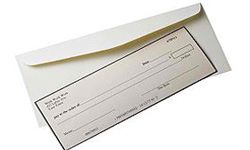The American taxpayer has plenty of options for filing income tax returns. If you have a relatively simple tax situation -- you make a modest income, work for someone else, and don't own a home or manage a lot of investments -- then online tax preparation Web sites are a safe bet. The services are inexpensive, quick and guaranteed to produce an accurate tax return. In addition to popular Web-based services like Turbotax, most of the brick-and-mortar tax preparation companies now offer their own online preparation services, too.
But not all tax situations are created equal. What if you're self-employed, manage some rental property, operate a farm or small business, or earn a lot of income from investments? In situations like these, you need a tax expert who can help you maximize your deductions and lower your overall tax burden. Your best bet is to hire an accountant or make an appointment at a local tax preparer's office. These folks know the tax code inside and out and can help you claim all of the deductions, exemptions and credits you deserve.
Advertisement
To guarantee a successful trip to the tax preparer's office, you need to do some preparation yourself. The following is a list of the five major areas you need to consider when gathering W2s, receipts and invoices to bring to the tax preparer's office. Let's start with one of the basics: identification.


